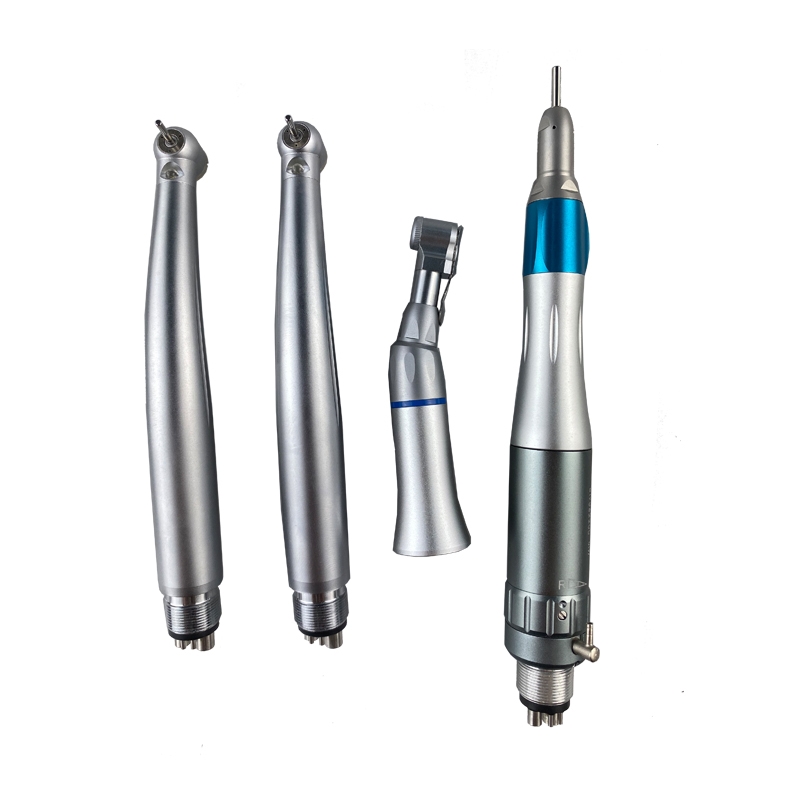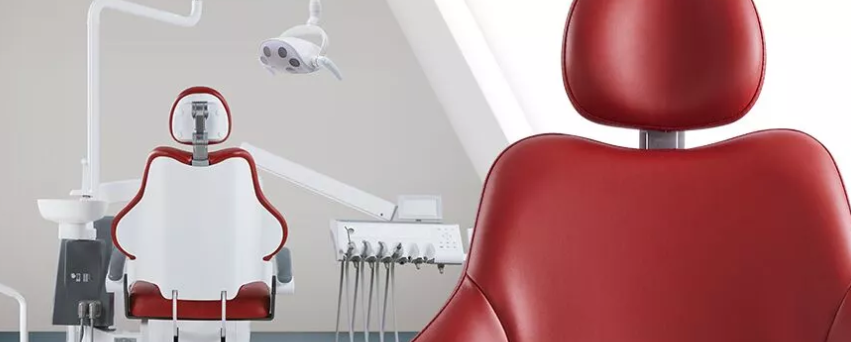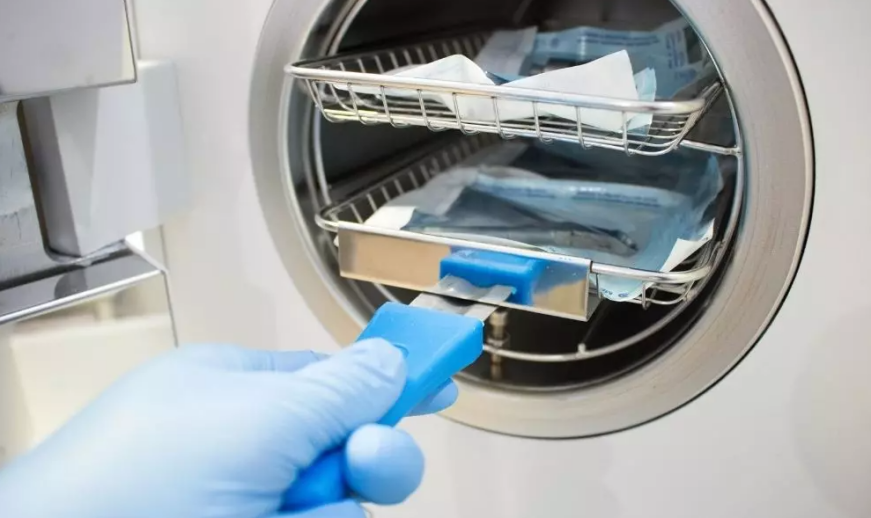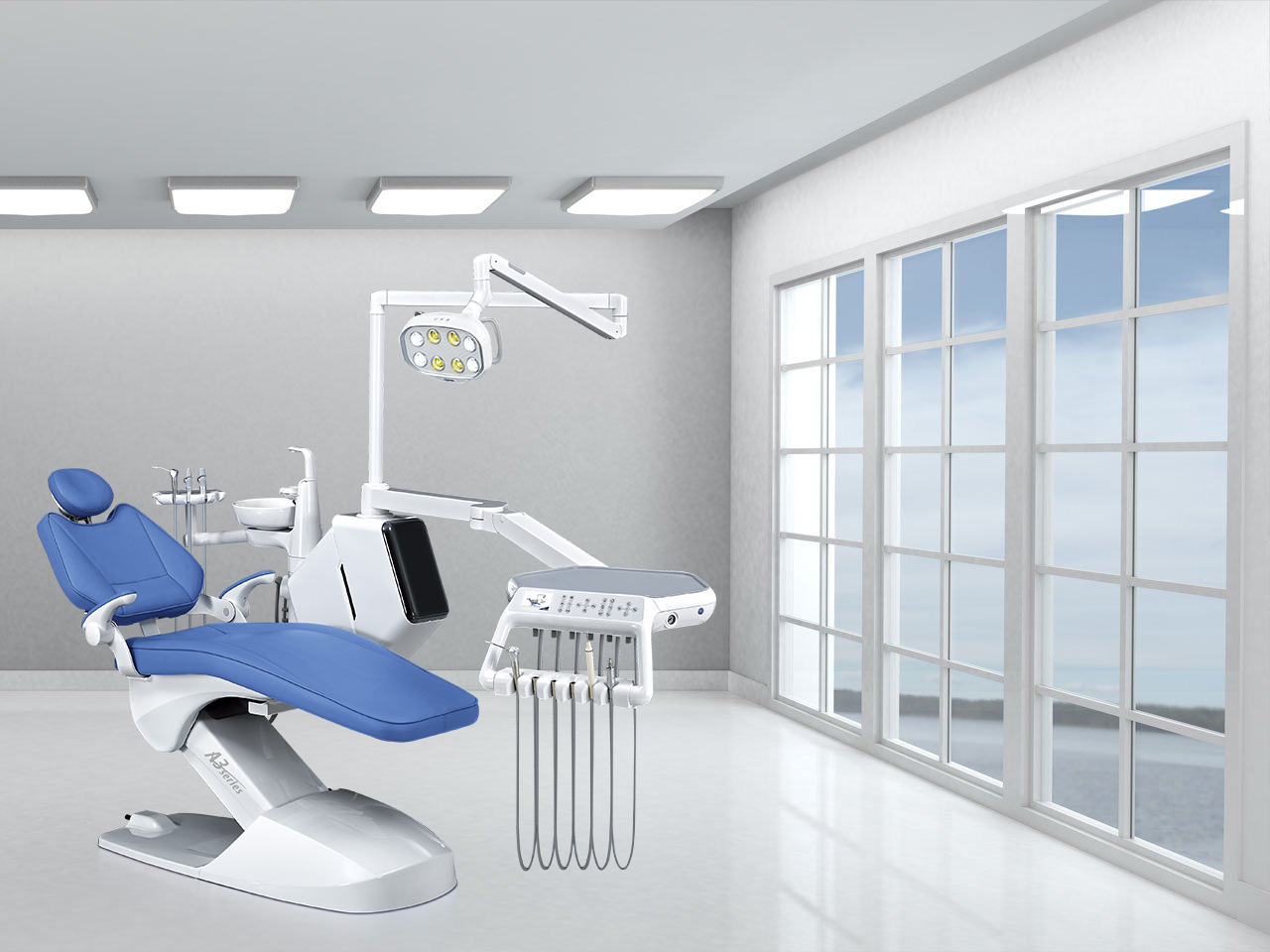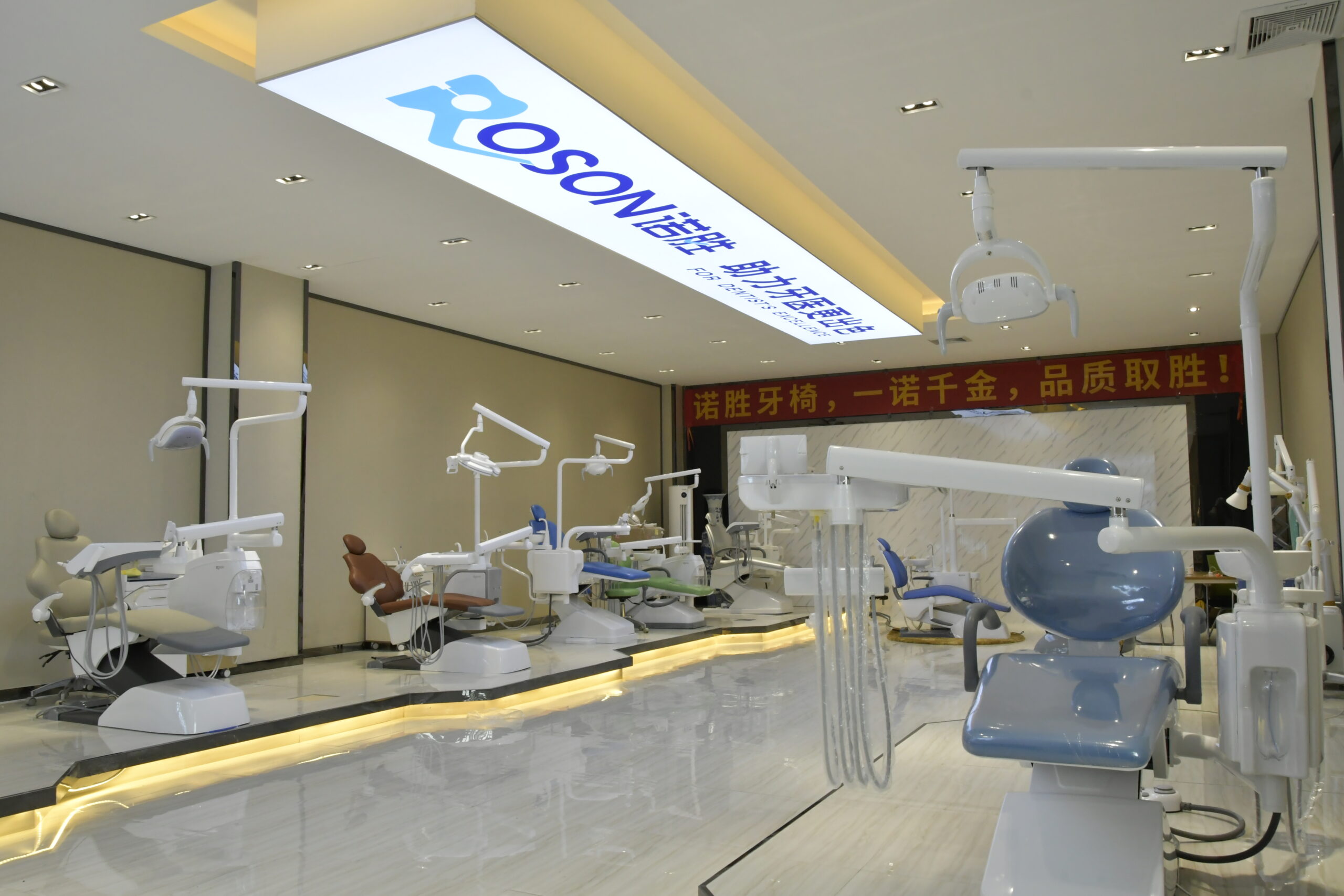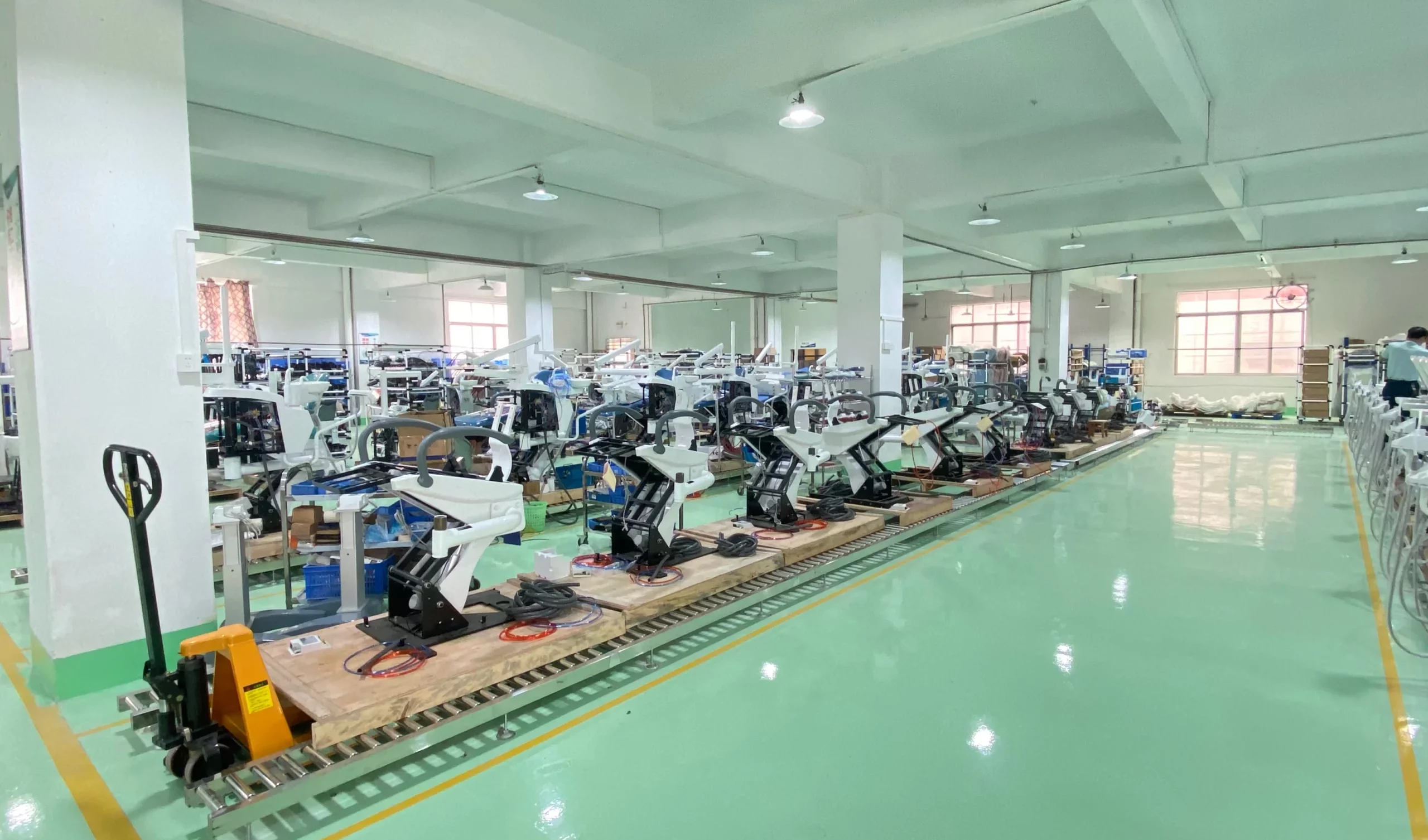In the realm of dental practices, ensuring clean air is not just a matter of comfort but a fundamental aspect of patient safety and treatment efficacy. The utilization of air compressors plays a pivotal role in maintaining air quality within dental environments. This guide aims to elucidate the significance of clean air compressors in dental practices, shedding light on their pivotal role and advocating for their wholesale adoption among dental industry professionals.
Understanding the Dental Environment
1.1 Dental Air Quality Requirements
Dental offices operate within a unique environment where maintaining air quality is paramount. Contaminated air in dental procedures can pose significant risks to both patients and practitioners. Given the proximity of tools to the oral cavity, any contaminants in the air can easily compromise the integrity of procedures and potentially lead to infections or other complications.
1.2 Regulatory Standards and Guidelines
Recognizing the critical nature of air quality in dental settings, regulatory bodies have established stringent standards and guidelines to ensure compliance. These standards mandate the implementation of measures to mitigate the risks associated with contaminated air, underscoring the importance of employing reliable air compressors that meet or exceed these requirements.
The Role of Air Compressors in Dental Practices
2.1 Utilization in Dental Equipment
Air compressors are the backbone of various dental equipment and procedures, powering essential tools such as dental handpieces, air scalers, and suction devices. These instruments rely on consistent and clean compressed air to function effectively, making the quality of the compressed air supplied by the compressor of utmost importance.
2.2 Importance of Clean Compressed Air
The necessity for clean compressed air in dental practices cannot be overstated. Any contaminants present in the compressed air can compromise the sterility of instruments and surfaces, increasing the risk of cross-contamination and infection transmission. Moreover, inadequate air quality can lead to malfunctions or premature deterioration of equipment, impacting both patient care and operational efficiency.
2.3 Common Issues and Maintenance
Inadequate maintenance of air compressors can lead to a myriad of issues, ranging from fluctuating air pressure to the buildup of contaminants within the system. Neglecting proper maintenance compromises the quality of compressed air and increases the likelihood of equipment malfunction or failure, disrupting clinical workflows and compromising patient care.
Benefits of Clean Air Compressors
3.1 Reduced Risk of Contamination
By investing in clean air compressors, dental practices can significantly reduce the risk of contamination and infection transmission. Maintaining a sterile environment is essential for safeguarding the health and well-being of both patients and practitioners, and clean air compressors play a pivotal role in achieving this goal.
3.2 Enhanced Performance and Longevity
Clean air compressors not only ensure the delivery of high-quality compressed air but also contribute to the enhanced performance and longevity of dental equipment. By minimizing the presence of contaminants and ensuring consistent air pressure, clean air compressors help optimize the functionality of dental instruments, thereby improving treatment outcomes and reducing the need for frequent repairs or replacements.
3.3 Compliance with Regulatory Standards
Adopting clean air compressors enables dental practices to stay compliant with regulatory standards and guidelines governing air quality. By adhering to these standards, practices demonstrate their commitment to patient safety and quality care, fostering trust and confidence among patients and regulatory authorities alike.
3.4 Improved Patient Comfort and Safety
Ultimately, the adoption of clean air compressors translates into improved patient comfort and safety. Patients can rest assured knowing that stringent measures are in place to maintain a clean and sterile environment during their dental procedures, contributing to a positive overall experience and fostering long-term patient satisfaction and loyalty.
Choosing the Right Clean Air Compressor: Essential Factors to Consider
4.1 Capacity and Output Requirements
When selecting a clean air compressor for a dental practice, it’s crucial to assess the capacity and output needs based on the size of the practice and anticipated workload. Understanding the volume of compressed air required for various procedures and equipment ensures that the chosen compressor can meet the demands of daily operations without compromising efficiency or performance.
4.2 Air Filtration and Purification Systems
The effectiveness of air filtration and purification systems is paramount in maintaining clean and sterile air within the dental environment. Look for compressors equipped with advanced filtration technologies designed to remove contaminants, moisture, and microorganisms from the compressed air, safeguarding both patient and practitioner health during procedures.
4.3 Noise Levels and Operational Considerations
Noise levels can significantly impact the working environment in a dental practice, affecting both patient comfort and staff productivity. Opt for air compressors that operate quietly and efficiently, minimizing disruptions and creating a more conducive atmosphere for clinical procedures and patient care.
4.4 Energy Efficiency and Environmental Impact
In addition to performance considerations, evaluate the energy efficiency and environmental impact of prospective air compressors. Choose models that prioritize energy efficiency, thereby reducing operating costs and minimizing the practice’s carbon footprint. Investing in environmentally friendly equipment aligns with sustainability initiatives and demonstrates a commitment to responsible business practices.
4.5 Maintenance Requirements and Support Services
Regular maintenance is essential for prolonging the lifespan and performance of clean air compressors. Prioritize models that offer comprehensive maintenance plans and reliable support services to address any issues promptly. Partnering with a manufacturer like ROSON ensures access to expert assistance and genuine replacement parts, minimizing downtime and optimizing equipment longevity.
Why Wholesale Purchase Makes Sense for Dental Practices
5.1 Cost-Effectiveness of Bulk Buying
Wholesale purchase of clean air compressors offers significant cost savings compared to individual acquisitions. By buying in bulk, dental practices can leverage economies of scale and negotiate favorable pricing terms, ultimately reducing overall procurement expenses and maximizing budget allocation for other essential investments.
5.2 Streamlined Procurement Process
Wholesale purchase streamlines the procurement process, eliminating the need for repetitive transactions and administrative tasks associated with acquiring multiple units separately. This approach saves time and resources, allowing dental professionals to focus on patient care and practice management without unnecessary administrative burdens.
5.3 Access to Specialized Products and Services
Wholesale purchasing provides dental practices with access to specialized products and services tailored to their unique needs and preferences. Manufacturers like ROSON offer a diverse range of clean air compressors designed specifically for dental applications, accompanied by comprehensive support services and customizable solutions to address individual practice requirements.
5.4 Long-Term Relationship Benefits
Establishing a long-term relationship with a reputable supplier through wholesale purchase fosters mutual trust and collaboration. By partnering with a manufacturer like ROSON, dental practices can benefit from ongoing support, product updates, and exclusive offers, ensuring continued satisfaction and maximum value throughout the equipment lifecycle.
Case Studies and Testimonials: Demonstrating Value in the Dental Industry
6.1 Real-Life Examples of Success
Numerous dental practices have experienced tangible benefits from the wholesale purchase of clean air compressors. Case studies showcase how adopting advanced compressor technology from manufacturers like ROSON has resulted in improved air quality, enhanced operational efficiency, and cost savings over time.
6.2 Testimonials from Satisfied Customers
Customer testimonials provide firsthand accounts of the positive impact of clean air compressors on dental practice operations and patient care. Satisfied customers attest to the reliability, performance, and value proposition of ROSON compressors, reaffirming their trust in the brand and its commitment to excellence in product quality and customer service.
Conclusion
In conclusion, clean air compressors are indispensable assets for dental practices seeking to uphold the highest standards of air quality, patient safety, and treatment efficacy. By investing in reliable compressors such as those offered by manufacturers like ROSON, dental professionals can ensure optimal clinical outcomes while demonstrating their commitment to excellence in patient care


